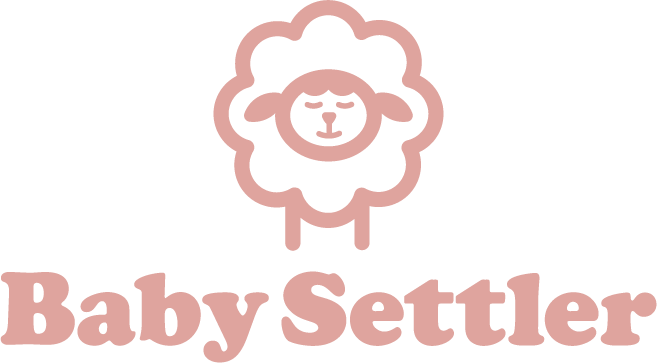
Suddenly – and sometimes all too quickly – you’ve transitioned from pregnant mama into mama of a newborn. The first few weeks of life with a newborn can be wonderful and overwhelming.
Luckily, there are a few things you can do that will help support you and your baby, so that the transition into looking after your new bundle of cuteness is a bit simpler.
Tip 1: Have Clothes For Easy Skin-To-Skin Contact
Skin-to-skin contact is important to practice with your baby, especially when they’re a newborn. Being in close contact with mom and dad is good for a baby because it relaxes them, and skin-to-skin contact regulates their heart rate and breathing, helping them to better adapt to life outside the womb.
According to UNICEF, “Skin-to-skin contact can also take place any time a baby needs comforting or calming and can help boost a mother’s milk supply…it helps parents bond with their baby and supports better physical and developmental outcomes for the baby.”
To help facilitate easier skin-to-skin contact without having to wriggle them out of a onesie, I love Bonsie. This babywear is specially created to make skin-to-skin contact easy and accessible – just open up the baby top and place your little one on your chest.
Tip 2: Learn Your Baby’s Hunger Cues
Crying is a late hunger cue. Before your baby gets to this stage, they most likely did things like smacking their lips, moving their fists to their mouth, and opening and closing their mouth. Notice these movements so that you can feed your baby before the crying begins.

To help mamas confidently make decisions and troubleshoot hiccups when it comes to breastfeeding, I created the online course, Breastfeeding Made Simple.
Tip 3: Create A Breastfeeding Care Box
Just because breastfeeding is natural, it does not mean it’s easy. So, it’s important to have support in place for you.
One way to do this is with a breastfeeding care box or bag.
Nipple butter, your favorite snacks, your phone charger, headphone, a breastfeeding pillow, and cozy blanket are just some of the things to include. Having some things within arms reach can help make the experience easier.
Tip 4: Start A Nighttime Routine
You don’t have to wait to start a bedtime routine with your newborn. You can start instilling good habits from the get-go.
Removing distractions and dimming lights when bedtime is nearing, and singing a lullaby, giving them a warm bath, and tucking them into a swaddle can help them relax and drift off.

For three things to consider when creating a bedtime routine for your baby, click here.
Tip 5: Swaddle Your Newborn
Swaddling your baby for sleep time can be super beneficial. Wrapping them in a swaddle can not only help them sleep for longer periods during the night, but it can also help them get good quality sleep. This is because it makes them feel secure and reminds them of being in the womb.
One of the swaddles that I recommend is the Woombie, as it keeps little ones comfortable while still allowing them to move and stretch.
For more on how to swaddle your baby and what you should look out for when choosing a swaddle, click here.
Tip 6: Heat Up Your Baby’s Crib
This is an amazing tip from Another Mommy Blogger. She points out that sometimes the cause of your baby to jolt back awake when you place them in their crib when they’re dossed off is the change of temperature. Put a hot water bottle or heating pad in the crib to warm it up – but take it out before you put your baby in bed.
If you’re still searching for the perfect crib for when your baby arrives, I highly recommend Nestig. These cribs can be adapted as your baby grows – from a mini crib to a toddler bed.

Tip 7: Have A Stash Of Just-In-Case Formula If You’re Breastfeeding
Even if you choose to breastfeed your newborn, having a good quality formula on-hand is still helpful. There can be days when breastfeeding just isn’t an option – this could be for a number of reasons, from you not producing enough milk to having someone else handle feedings.
There are so many amazing formulas out there, one being Bobbie. This organic infant formula is created to be easy on little one’s bellies while also assisting in brain development and immunity support.
Tip 8: Get The Latch Right
One of the issues that many breastfeeding mamas struggle with is the latch. Newborns don’t know exactly the correct way to latch onto the nipple after they’re born, so their mom needs to guide them.

A baby should get not only the nipple, but a lot of the areola into their mouths when feeding. They shouldn’t have to twist to get into the right position, and their chin should be pressed into the breast while their nose is free to breath.
For more on what a good latch looks and feels like, click here.
Tip 9: Introduce A Bottle
This obviously does not have to be during the first 12 days – once they’re got the hang of breastfeeding (for those moms who are breastfeeding), you can start to introduce a bottle. Breast and bottle are two different things for a baby and require them to do different things. A newborn needs to have a tight seal around the nipple and areola and open their mouth wide when breastfeeding, while with a bottle the milk will just flow.
Introducing a bottle earlier rather than later can make the transition from maternity leave back to work a bit easier.
For tips on introducing a bottle to your baby, click here.
Tip 10: Have Many Spots Around The House For Baby
You’re going to be taking your baby everywhere with you – from the bathroom to the kitchen to the lounge. So, instead of dragging their car seat or carrycot with you as well, set up spots for your newborn around the house. Set up a baby swing in the lounge, leave their car seat on the kitchen table, and place their carrycot in the bathroom.
Tip 11: A White Noise Machine Can Help Baby Sleep
An optimal environment for your newborn to experience good quality sleep includes little to zero distractions, a dark room, and a comfy crib. What can also help is a white noise machine.

The gentle rhythm of a rainforest or heartbeat, for example, can help reduce the distraction coming from other rooms or the road outside, and can encourage sleep.
Tip 12: Ask For Help
Whether it be from a mental health professional, lactation or sleep consultant, or your partner or family member, ask for help. You don’t have to struggle in silence while you navigate the new role of mama.
You’re allowed to give yourself a break, even if your baby is a newborn. Ask your partner or someone you trust to look after your little one while you have an hour or two to yourself (this is where getting your newborn used to bottle feeding also helps).
An uninterrupted nap, a long bath, or a lunch out can do wonders for your mood. Remember, you may be a mama to a newborn, but you’ve still got to look after yourself. When we as mothers focus on self-care, our children benefit.
Remember, you’re doing the best that you can! Give yourself some grace and also take the time to really appreciate this stage of your newborn’s life – it does go quickly!




